Lose Abdominal Fat in 90 Days with a Vegan Diet

Vegan and plant-based diets are shown to be effective for weight loss. "Generally speaking, vegan diets are associated with a lower calorie intake than other forms of plant-based diets, resulting in more significant weight loss," exercise physiologist Brad Dieter tells NASM. "Lower calorie intake is attributed to plant-based diets with higher fiber content, greater food volume, and lower energy density." While it's impossible to lose fat in just one spot, burning fat and losing weight overall will lead to less abdominal fat. Here's how to do it on a vegan diet.
Eat Your Vegetables
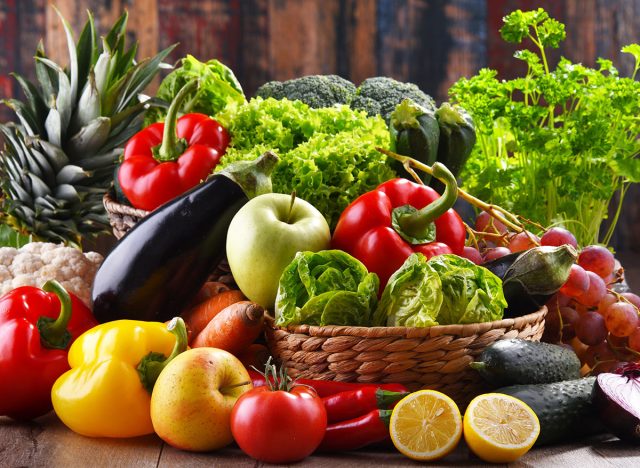
Vegetables are delicious and packed with satiating fiber. "Fill half your plate with vegetables at lunch and dinner," says Katherine D. McManus, MS, RD, LDN, via Harvard Health. "Make sure you include plenty of colors in choosing your vegetables. Enjoy vegetables as a snack with hummus, salsa, or guacamole."
Plant-Based Protein
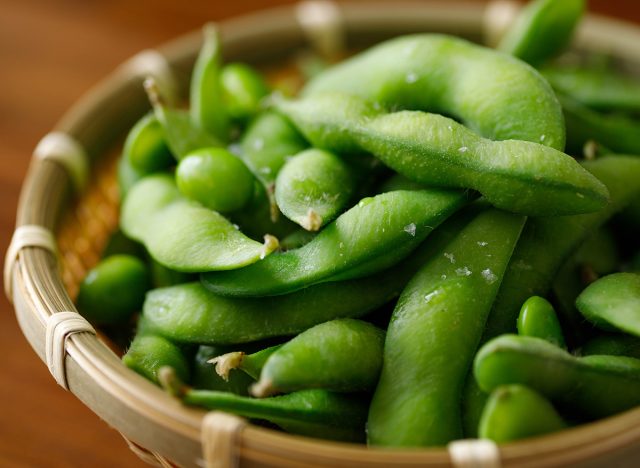
Getting enough protein is important for overall health, including supporting muscle growth while losing fat. "There are plenty of other foods that can provide you with protein, such as tofu, edamame, quinoa, sorghum, lentils, chickpeas and most beans and legumes," says the American Heart Association. "And there are many good sources of protein from vegetables, too, including artichokes, asparagus, broccoli, Brussels sprouts, collards, corn, peppers, spinach, sweet potatoes and turnip greens."
Eat Whole Foods
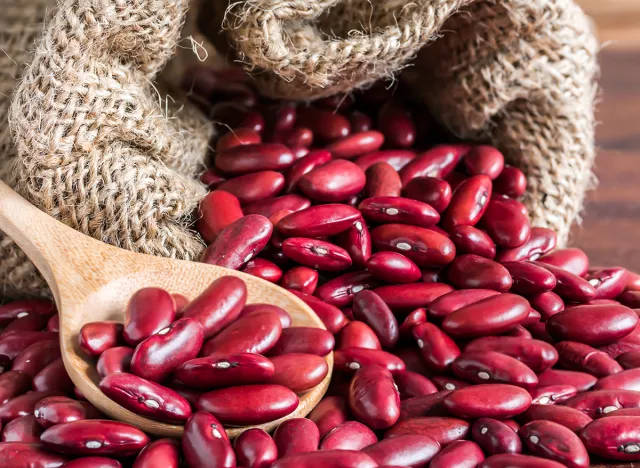
Watch out for ultra-processed vegan foods. "Don't replace meats with highly processed meat substitutes or 'vegan junk food,'" says the American Heart Association. "Instead, choose high-quality, nutrient-dense plant-based foods. A recent study showed that eating primarily these types of food, such as vegetables, fruits, whole grains, beans, legumes and nuts, was associated with a lower risk of death from cardiovascular diseases."
RELATED: 7 Bad Habits That Prevented Me From Losing Weight
Refined Grains
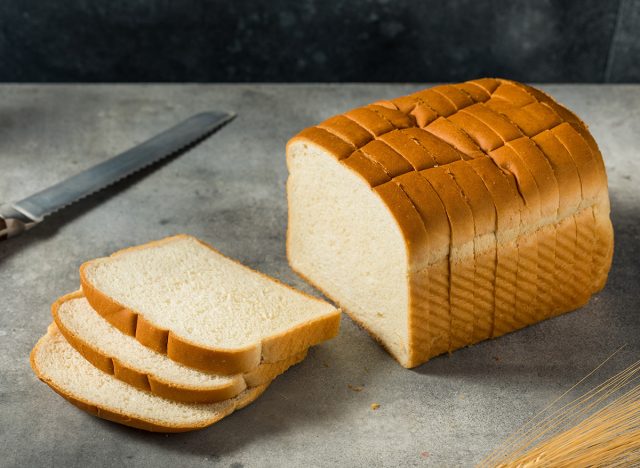
Be mindful of added sugars and refined grains. "Refined grains, sweets and junk food are troublemakers for everyone, not just vegans," cardiologist Jeffrey Soble, MD, tells RUSH University Medical Center. "And vegans and nonvegans alike can fall into the habit of making these items the mainstays of their diet."
Important Nutrients

Consider taking supplements to support your vegan diet. "Compared to the vegetarian diet, the vegan diet seems to offer additional protection against obesity, diabetes mellitus type 2, and hypertension," says Obesity Medicine. "While there are health benefits to following the vegan diet, special consideration has to be made to ensure that adequate levels of protein, vitamin B12, calcium, vitamin D, and zinc are also consumed."
Portion Control
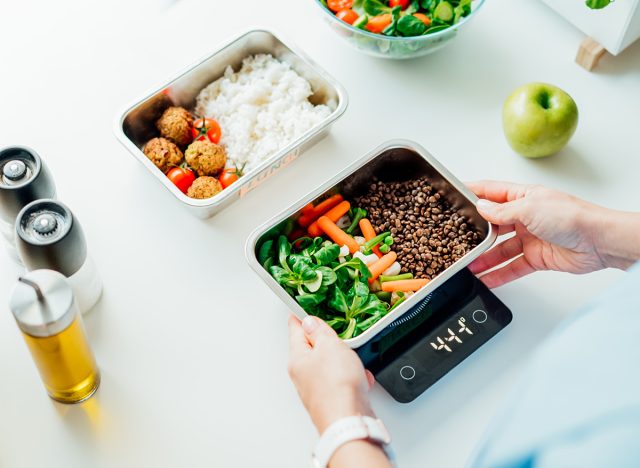
Remember that portion control is still important for someone on a vegan diet. "The caloric intake for someone with obesity on a vegan diet will vary depending on age, gender, weight, height, activity level, and individual goals," says Obesity Medicine. "However, in general, a safe and effective weight loss approach is creating a calorie deficit of approximately 500-1000 calories per day. This gradual calorie reduction can lead to a sustainable weight loss of about 1-2 pounds per week."
Whole Grains
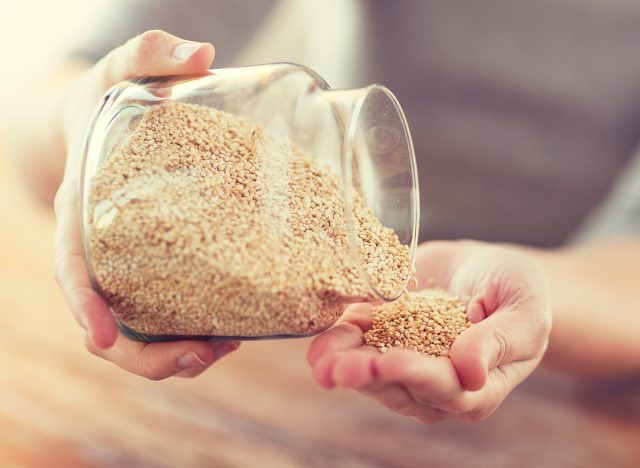
Whole grains are packed with fiber and can help with weight loss. "Include whole grains for breakfast," McManus says. "Start with oatmeal, quinoa, buckwheat, or barley. Then add some nuts or seeds along with fresh fruit."
RELATED: 12 Signs You're Eating Too Much Fiber
Enjoy Fruit
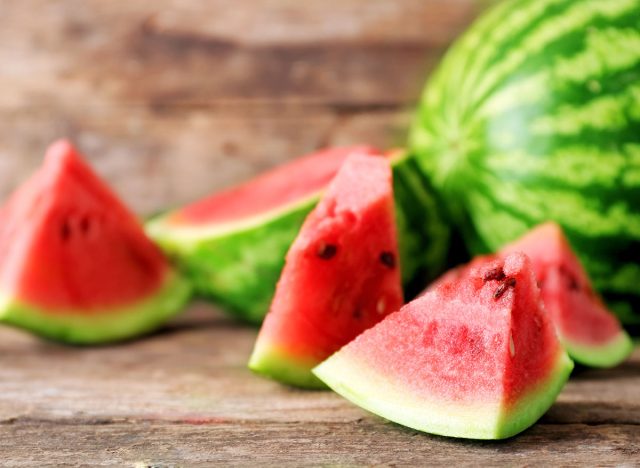
Fruit is the perfect dessert for a vegan trying to lose weight, especially low-sugar varieties. "A ripe, juicy peach, a refreshing slice of watermelon, or a crisp apple will satisfy your craving for a sweet bite after a meal," McManus says.
Eat, Don't Drink
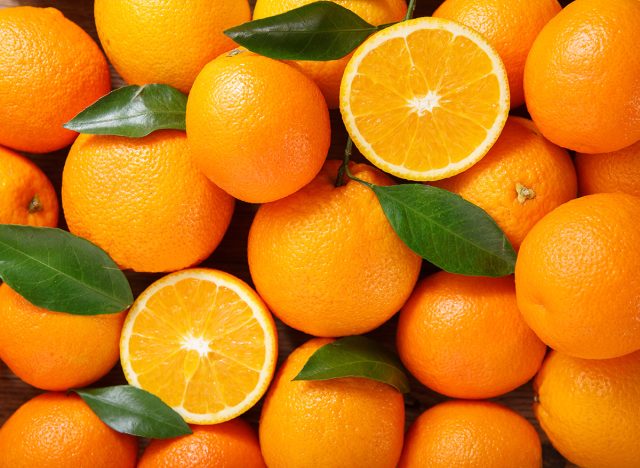
Try to eat food such as fruit in its whole form. "Drinking 100% fruit juice is not the same as eating the whole fruit, since juices can be high in sugar and squeeze out valuable fiber and vitamins," says Harvard Health. "And many canned plant foods include extra additives, sodium, and sugar."
Sustainable Changes
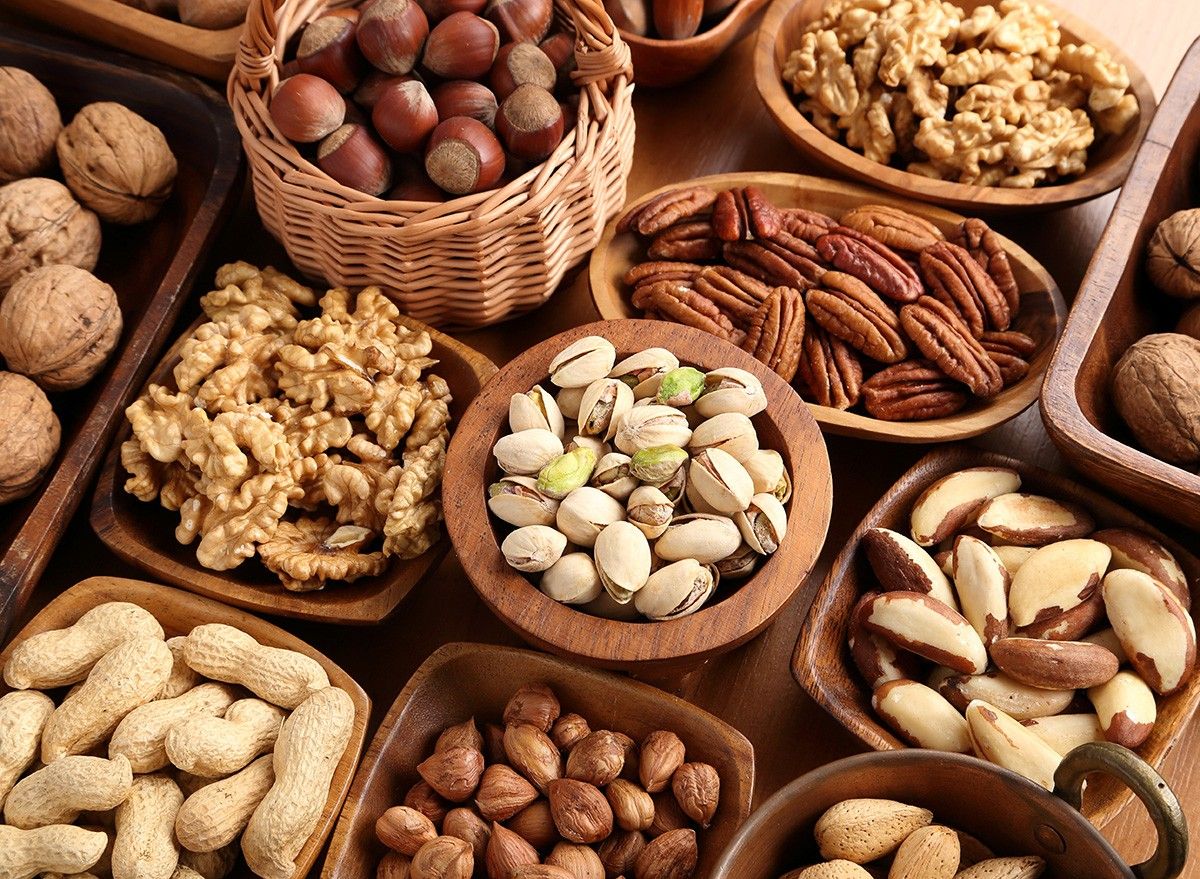
Ease into a vegan lifestyle if that makes it easier to sustain long-term. "A moderate change in your diet, such as lowering your animal food intake by one to two servings per day and replacing it with legumes or nuts as your protein source, can have a lasting positive impact on your health," Dr. Ambika Satija tells Harvard Health.
RELATED: 5 Fake Superfoods & 5 Real Superfoods, According to an MD
Professional Advice

If you need help figuring out your diet, talk to a professional. "If you're thinking about going vegan or vegetarian, it's a good idea to make a nutrition plan with a physician or a registered dietitian," says Johns Hopkins Health. "It's especially important if you have preexisting health conditions such as diabetes, heart disease, obesity or a gastrointestinal disorder." And if you enjoyed this article, take advantage of these 15 Quick Ways to Lose Body Fat Percentage in a Week.




